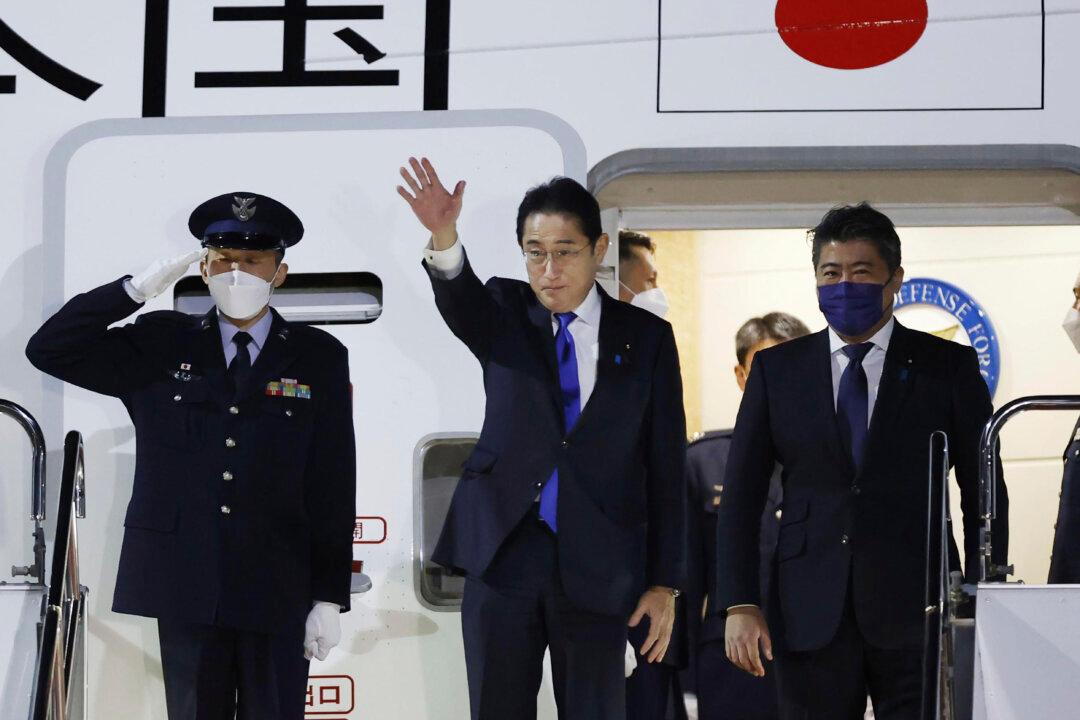Japanese and French leaders agreed on Monday to strengthen their bilateral security cooperation in the Indo-Pacific amid rising security challenges posed by the Chinese Communist regime.
Japan’s Prime Minister Fumio Kishida met with French President Emmanuel Macron in Paris on Monday as he kicked off a weeklong tour of G-7 nations, including Italy, Britain, Canada, and the United States.





